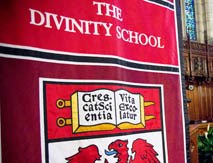Brett Scharffs on John Banzhaf’s Fatwa against Catholic University – Sightings

Brett G. Scharffs, Francis R. Kirkham Professor of Law and Associate Director, International Center for Law and Religion Studies, Brigham Young University Law School has published the article “John Banzhaf’s Fatwa against Catholic University” in the 10 January 2013 issue of the University of Chicago Divinity School’s online publication, Sightings. The article concerns a human rights complaint against Catholic University for not making prayer space available for Muslim students.
Excerpts: “On first glance, this looks like an example of a powerful religious majority institution refusing to accommodate a small minority religion within its own sphere. Resorting to a lawsuit appears to be a last-ditch effort by a religious minority for a measure of recognition and respect within a hostile majoritarian institution, a religious institution no less. The complaint sounds like a classic breakdown in communication – the law being used to resolve a dispute that should be composed (in the sense of being settled, resolved, and calmed) rather than litigated. Where a reasonable accommodation could easily be made, we imagine two sides, entrenched and intransigent, hunkering in for a fight.
“But the facts do not fit this compelling narrative. The complaint was filed with the DC Office of Human Rights by John F. Banzhaf III, a public interest law professor at George Washington University Law School. The complaint was based upon a 2010 story in the Washington Post, which described in mostly favorable terms the experiences of Muslim students at the Catholic University. ….
“As its name announces, Catholic University is a private religious academic institution. Neither U.S. Constitutional nor federal law prohibits religiously-affiliated universities from displaying religious symbols relating to their own faith. Indeed, any effort by the government to limit such expressions would almost certainly be struck down as a violation of free exercise, free speech, and free association rights.
“Complaints like these appear to be designed primarily to agitate rather than illuminate. We should expect that in due course the complaint will be quietly dismissed by the Human Rights Commission. Nothing more, perhaps, than a tempest in a teacup.
“The danger, however, is that episodes like this serve to stir the cauldrons of anti-Islam sentiment that do simmer in some sectors of our society, who were quick to interpret the case as part of some dark conspiracy by Muslims to attack Christian institutions.”